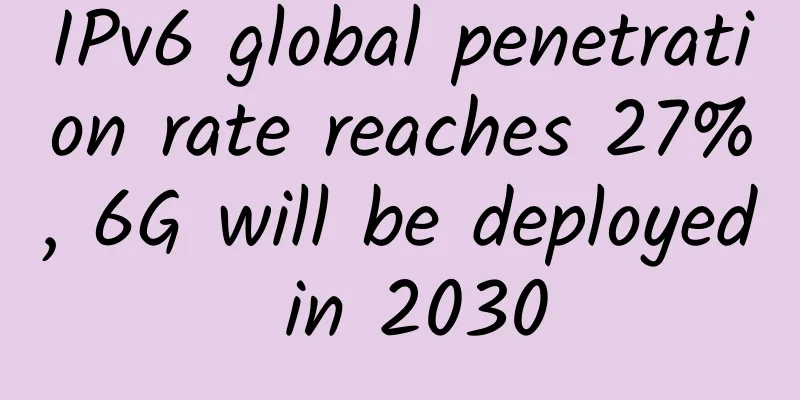Countries are launching alliance strategies to compete for the right to formulate 6G standards

|
As many countries have suffered losses in the pace of 5G deployment, in order to no longer be controlled by others in the next generation mobile network 6G, many countries are actively developing 6G and hope to become the standard setter. In this battle in the next decade, forming alliances will become one of the keys to victory.
This trend can be seen from the recent cooperation between many countries. For example, the Finnish 6G flagship research program coordinated by the University of Oulu and the Beyond 5G Promotion Alliance of the Ministry of Internal Affairs and Communications of Japan signed an agreement in June 2021 to jointly cooperate in the field of 6G technology that has not yet been standardized. The goal of this cooperation is to make a significant contribution to the global standardization and regulatory development of 6G technology. At the same time, the United States and the United Kingdom also announced plans to develop a detailed science and technology cooperation agreement, which will include a strategic cooperation clause on the development of 6G technology. From now until 2022, the two countries said they will develop a statement of intent focused on advancing proposals on future technologies such as 6G and strengthening cooperation on digital technology standards. This cooperation is part of the Atlantic Charter signed by US President Biden and British Prime Minister Johnson. In addition to 6G, the revised charter will cover cooperation to improve the resilience of key supply chains; help promote emerging fields such as AI and quantum technology; and enhance the accessibility and mobility of data to support economic growth, public safety and scientific progress. In fact, as early as April 2021, the United States and Japan signed an agreement to cooperate in investing in the research, development, testing and deployment of secure networks and advanced ICT (including 5G and next-generation mobile networks), and invested $4.5 billion in this work. At the end of April that year, the National Science Foundation invited nine technology and telecommunications giants to participate in a new public-private partnership program aimed at laying the technical foundation for 6G. In addition, Samsung Research Institute, Samsung Research America, and the University of California, Santa Barbara, all under Samsung Electronics of South Korea, presented research on the potential impact of terahertz on next-generation 6G technology at the Terahertz Communications Symposium held at the IEEE International Communications Conference (ICC 2021) in June 2021. They were end-to-end 140GHz wireless links using a fully digital beamforming solution. According to ABI Research, a global technology market advisory firm, initial commercial deployment of 6G technology is expected to begin between 2028 and 2029. As for the first standard of 6G, it is expected to be ready in 2026. This has driven projects, initiatives and alliances launched by many other countries, including China, South Korea, the European Union and the United States, to shape the 6G framework and key commercial priorities. |
<<: 5G IoT may be the next opportunity
>>: Redis: How do I communicate with the client?
Recommend
How to set IP in CentOS9
Just for record, I found that there are still hug...
Gateway programming: How to reduce R&D costs through user gateways and caches?
If the user's traffic is like the surging wav...
No need for WiFi, can you surf the Internet with light? China releases the first visible light communication chip
No need for WiFi, can you surf the Internet with ...
The 5 keys and applications of blockchain
A few years ago, not many people had heard of the...
China Mobile may withdraw all 3G networks by 2020, but terminals still need to support GSM
At the Global Terminal Summit held recently, Chin...
Unleash the value of the document middle platform ecosystem and empower digital innovation for government and enterprises
[51CTO.com original article] With the popularizat...
Five-minute technical talk | A brief analysis of the generation strategy and application scenarios of distributed UUID
Part 01 What is UUID UUID stands for Universal Un...
Baidu responds to real-name registration: Implementation in accordance with regulations will not affect search
Recently, Baidu Netdisk released an announcement,...
Five API Gateway Technology Options
This article intends to discuss gateways around s...
In-depth Explanation: What is "Time Granting"?
[[340662]] This article is reprinted from the WeC...
How to Get the Most Out of Network Performance Management Tools?
EMA has studied how organizations use multiple ne...
With this, you will never be able to steal my chicken again!
When I was a kid, there was always a big yellow d...
Singapore to shut down 3G and reallocate spectrum for 5G
Singapore will shut down its 3G network in July n...
What is FlexE in 5G bearer network?
[[413331]] This article is reprinted from the WeC...
Smartphones supporting Wi-Fi 6/6E will dominate the market by 2025
Wi-Fi 6E will be commercially available in 2021. ...






![[Black Friday] Megalayer: Hong Kong/Singapore VPS flash sale 9.9 yuan/month, Hong Kong server 199 yuan/month, top up and get 10% back](/upload/images/67cabcfaacf10.webp)


